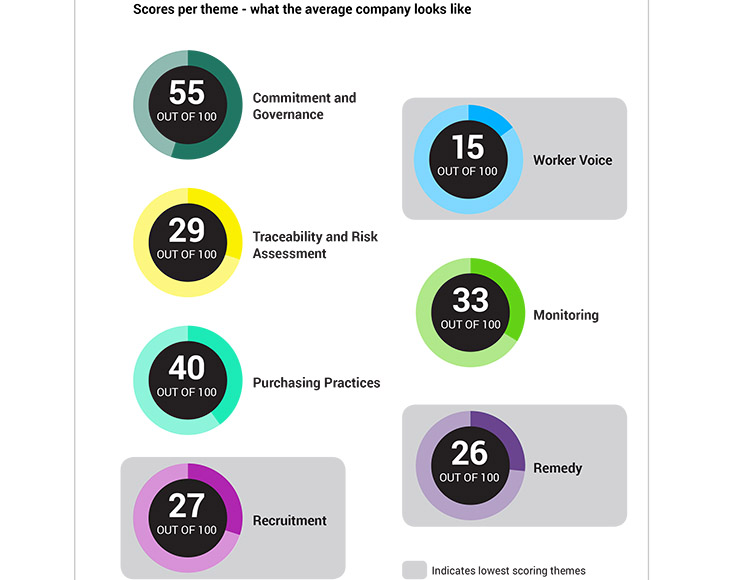High tech logistics managers faced with new challenge: workforce slavery
A recent report issued by KnowTheChain, a supply chain consultancy based in San Francisco focuses chiefly on leading Silicon Valley multinationals that often extoll their progressive “human rights” policies.
News emanating from the U.S. West Coast indicates that among many of the new risks logistics managers must confront these days is that of forced labor.
A recent report issued by KnowTheChain, a supply chain consultancy based in San Francisco focuses chiefly on leading Silicon Valley multinationals that often extoll their progressive “human rights” policies.
According to its 2018 Information and Communications Technology Benchmarks Report, the technology sector is guilty of widespread abuse.
While 35 out of 40 companies have published a commitment to address forced labor in their supply chains, there is often a disconnect between the policies that companies have in place and evidence that those are effectively implemented, noted Kilian Moote, Project Director of KnowTheChain.
This is the second information and communications technology (ICT) benchmark report. It ranks the top 40 global ICT companies—with a combined market capitalization of $4.7 trillion—on how they address forced labor in their supply chains.
Researchers said Intel scored highest in the 2018 benchmark, overtaking both Apple and HP since 2016. Another insight contained in the report is that although larger companies tend to be among the top scorers, Amazon did not perform well.
“We were surprised by this finding,” said Moote. He added that the areas that have the most impact on workers’ lives – worker voice and recruitment – remain among the lowest scoring themes for all companies.
While the majority of companies have taken steps to improve compared to 2016, the sector as a whole needs to take stronger actions to protect vulnerable workers.

Source: KnowTheChain
The report urges companies to engage with workers, give them access to effective grievance mechanisms, and tackle the exploitation of migrant workers by implementing ethical recruitment practices and repaying workers for recruitment fees they may have paid.
The average benchmark score was 32 out of 100 possible points, with Intel scoring highest (75/100) and Largan Precision scoring lowest (0/100). While the top scoring companies have strong practices in place regarding their first-tier suppliers, their efforts are not being matched by some of the world’s largest suppliers: six companies (Amphenol, Keyence, Microchip Technology, Corning, Broadcom, and BOE) who supply to the largest ICT companies in the benchmark scored below 10/100, thus taking limited steps to address forced labor in their own supply chains.
“This is the first time we’ve been able to measure companies’ progress against where they were two years ago,” said Moote. “It’s encouraging that companies are starting to address forced labor. But this benchmark shows that the sector needs to advance their efforts further down the supply chain in order to truly protect vulnerable workers.”













